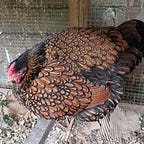ethics of permaculture and vaccination
First, let’s talk about the ethic of Fair Share.
The original framing of the ethic was surrounding the idea that our consumption should have finite limits. That we should — as far as is possible — endeavour to limit our consumption, such that the sharing of the earth and its finite resources is fair — or at least fairer.
On the surface: fairly sharing involves providing opportunities to those who don’t have the same wealth and opportunity as we do. But deeper and more relevant for the permaculturist, it involves being resolved and willing to take measures to ensure that we don’t deplete future resources by our decisions today.
It’s one of the reasons we have the principles catch and store energy (at the highest possible level) and use and value renewable resources. The memory phrase for produce no waste — “a stitch in time saves nine” — also builds in the concept of enabling better use of resources. If we can save time and energy and resources in prevention, isn’t that far better than a cure?
A vaccine is prevention — as much as eating healthily is prevention, as much as a seatbelt is prevention, as much as hardhats on building sites are prevention, as much as designing a house for sustainability is prevention.
Originally, I was going to describe vaccination as ‘the stitch in time that saves nine’. But I think that’s an incomplete use of the paradigm.
Yes, vaccines are a stitch in time that saves nine, but they are not a cure-all or a fix, and nobody should be saying they are. However, in the overall scheme of our health, vaccination is one more brick in the wall of our defences against sickness, one more obstacle for the virus to get through, one more point on the scoresheet in favour of survival, of life, of opportunity and potential and second chances. They are one more layer in the ‘swiss cheese layered defence’ against the debilitating sickness that is COVID-19.
For an example of layered defence against COVID-19, I recommend reading the Swiss Cheese Pandemic Defence from the New York Times. (May be behind a paywall; if so, I apologise.)
Vaccination is one more layer in the defence, alongside wearing masks in close quarters, avoiding close quarters where possible, not congregating in large groups, and not going out when you’re feeling ill.
Acknowledging these as useful defences takes nothing away from permaculture ethics and principles, or even health and wellness. It denies nothing of our need to work at improving our resilience as individuals, as community, and as humanity. Together, these things work with vaccination to give us a better chance against the virus — individually, as people likely to get sick, and as a group. It also reduces carriers and potential locations for mutation of the virus into something more infectious and more deadly.
Using every defence we have against the virus is valuing a diversity of defences against getting sick.
Taking the vaccine is also valuing the diversity of our population. Not just those who can grow their own food on untainted land, and afford to eat healthy. Not only people who have good immune systems, who can learn about lockdowns and testing and case numbers that are given in English (not even Auslan anymore), and have the transport to easily get to a vaccination hub, but those who can’t.
These people include the immunocompromised, the multi-generational ESL family, people with less money or living in a food, transport, or green spaces “desert”, and indigenous mob and minorities who have far, far less historical reason and current experience to trust the government and medical experts than most white permaculturists.
In the part of Australia where I live, to be honest, they aren’t generally a significantly visible part of “our local community”. However, they are still in our community of Australians, and, yes, us being vaccinated gives them the time they need to be educated about what the vaccination does and can do for them and their groups.
And when one of them falls sick with COVID, it will put one more small weight onto a stretched health system.
What catching COVID-19 means is one more patient for the hospitals, one more pressure on the health system, one more person at risk of what is being called ‘long COVID’ — a long, debilitating recovery that has lasted for more than a year in some of the early afflicted. Once-healthy people now struggle to stay upright for a couple of hours a day; marathon runners now find themselves breathing heavily just to cross the street. They are likely to end up being unable to function at the capacity they once did for months — perhaps even years, instead struggling along at life.
The vaccine is one more layer of defence against catching the virus, one more layer of defence against another body having to go to the health system, and one more layer of defence against the debilitating results of getting the virus.
Now, catching COVID-19 is not a moral or ethical failing, and we should disdain to see it as such. But to be vaccinated in light of the consequences of catching COVID, is to act with the ethic of ‘fair share’ in mind. We are using an available resource in the now to take one step further away from something that will put undue burden on us, on our community, on our society in the future. We are “limiting” ourselves in the present so that we will not be burdening our society excessively in the future.
May I encourage us to make use of one more defence against COVID by getting vaccinated, and, in doing so, to value the diversity of our Australian community, the diversity of preventative measures against getting COVID, and to practice the ethic of Fair Share by reducing the likelihood of us having to take up valuable resources in the future?
